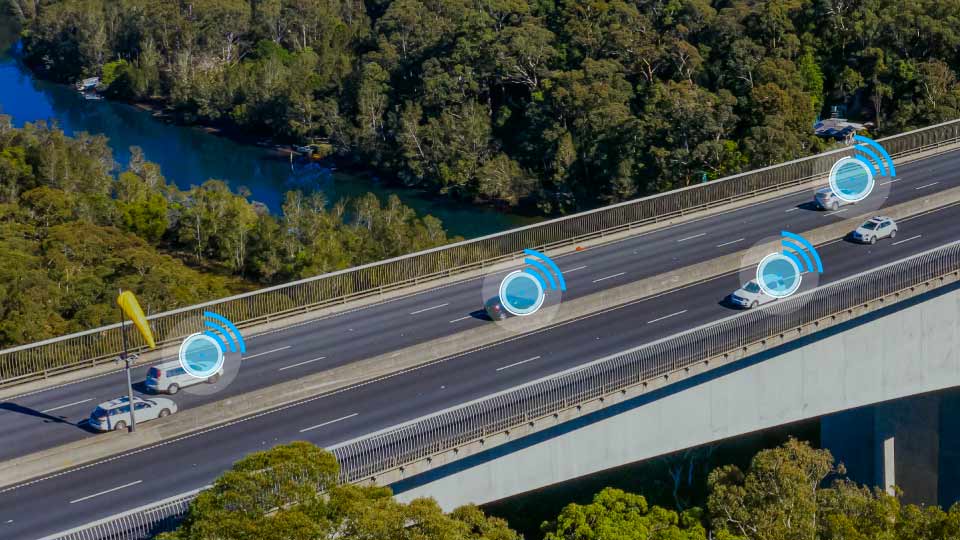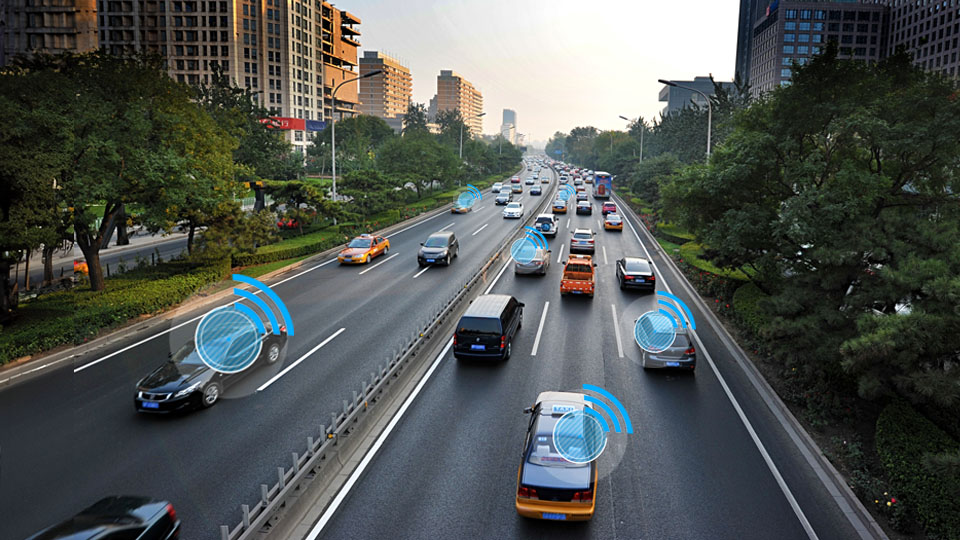
Revolutionising fleet connectivity: The transformative impact of 5G as 3G networks bow out
Last updated on March 20, 2024 in Fleet Management by Geotab Team | 3 minute read
Table of contents
For some fleet managers, transitioning away from 3G might be a minor headache, but for most it should be a reason for optimism. 5G will improve the capability of telematics devices and will provide an opportunity to improve efficiency, enhance safety and find additional savings.
The latest 5G technology brings significantly higher speeds, lower latency, and simultaneous connections to more devices at once, which complements the needs of modern mobile and Internet of Things (IoT) consumers. Global auditing and advisory firm, PwC, predicts that 5G will encourage businesses to adopt emerging technologies since it now facilitates better connections.
However, a 2022 Deloitte report titled ‘5G unleashed: Realising the potential of the next generation of mobile technology’ found that while 62 percent of businesses agree that 5G will accelerate the growth of their business, 59 percent of them have no strategy to implement it.
As Australia inches closer to the gradual decommissioning of 3G networks this year, the country’s telematics sector stands on the cusp of a significant transformation. Vodafone has already turned off their 3G networks in December 2023, and Telstra and Optus are expected to do the same in June and September. While 3G might have brought mobile internet access to the world and made the consumption of multimedia content possible on the go, it is time to bow out.
Why is the 3G shutdown significant?
To Geotab, the 3G shutdown is a mark of progress for fleet management operations, as companies nationwide upgrade their devices to complement the latest 5G network, which offers greater data capabilities at faster speeds. Given Australia’s vast geographical expanses and the critical role that fleet operations play in the economy, local transport businesses are likely to benefit significantly from this change.
Here are five ways that fleet operators on Geotab’s solutions can benefit from being on the 5G technology.
Enhanced data transmission
The superior speed and reduced latency of 5G technology facilitate real-time transmission of large volumes of data. For vehicles using Geotab’s telematics systems, fleet managers can instantly analyse and share fleet data, including high-definition video feeds, vehicle diagnostics and driver behaviour metrics. The quick extraction of data can lead to more timely and informed decision-making processes for fleet operators.
Improved reliability
The 5G network offers significantly improved reliability over all its predecessors. Fleet managers will be able to enjoy constant access to critical data, even while the vehicle is at remote or underserved areas. This is particularly beneficial in Australia, where fleets often operate in remote and geographically challenging environments.
Moreover, fleet operators can expect AI-driven insights from video telematics to be more enhanced with 5G’s capability to stream high-resolution clips at a fast speed, which is a critical component of modern fleet management. With access to detailed visual evidence of incidents, driver performance, and compliance with safety protocols in near real-time, fleet operators can enjoy greater overall fleet safety and operational transparency.
Increased scalability and flexibility – regardless of vehicle types and sizes
The Internet of Things (IoT) is set to expand under 5G, allowing for an unprecedented number of devices to be connected simultaneously. For fleet management, this flexibility means more comprehensive monitoring capabilities and the ability to adapt to their operational needs.
Additionally, the increased connectivity and device density supported by 5G perfectly complements with Geotab's open platform approach. This synergy allows for the seamless addition of sensors and devices to the fleet – regardless of vehicle types and sizes – without compromising performance. This enables businesses to scale their operations and integrate new technologies as they emerge.
Predictive Analytics and Maintenance
5G’s quick connectivity will boost the ability of Geotab’s AI-enhanced solutions to analyse vast datasets in real-time. Fleet managers are now able to quickly predict potential vehicle failures and maintenance needs before they occur. This predictive capability ensures that fleet operations are not just reactive but also proactive, minimising downtime and extending the lifecycle of fleet vehicles.
Enhanced Safety and Efficiency
The real-time data processing enabled by 5G technology allows Geotab's platform to offer more dynamic routing and dispatching solutions. AI algorithms can analyse traffic patterns, weather conditions, and vehicle performance metrics on the fly, optimising routes for safety and efficiency. This can lead to significant cost and fuel savings, reduced emissions, and improved driver safety.
Why fleet operators should act fast and act now.
With an expiry date placed on the 3G network, the switch is now inevitable. But doing it fast means that fleet operators will get to enjoy the first mover’s advantage. Fleet managers will be able to familiarise themselves with the latest tech infrastructure and telematics devices ahead of their competitors.
Geotab’s GO9 and GO9+ is Geotab’s most powerful vehicle tracking device, which features an expanded capacity to support improved fuel usage, electric vehicles, and global fleet expansion. The affordable device is designed to cater to a wide range of businesses from ride hailing to heavy-truck fleets.
As Australia moves towards a 5G-powered future, the fleet management sector is set to become more connected, intelligent, and innovative than ever before. The phasing out of 3G networks in the country is a turning point for all businesses, as it marks the beginning of embracing a new generation of emerging technology. We believe that there is immense potential for 5G to revolutionise fleet operations as it could offer enhanced efficiency, reliability, and a host of new capabilities.
If you liked this post, let us know!
Disclaimer
Geotab's blog posts are intended to provide information and encourage discussion on topics of interest to the telematics community at large. Geotab is not providing technical, professional or legal advice through these blog posts. While every effort has been made to ensure the information in this blog post is timely and accurate, errors and omissions may occur, and the information presented here may become out-of-date with the passage of time.
Other posts you might like

Navigating the Future: Five telematics trends taking 2024 by storm
January 18, 2024

What is ADAS?
January 12, 2024

Fleet leasing: The pros and cons
November 20, 2023

The top 5 ways fleets use data and telematics to succeed
March 7, 2023
